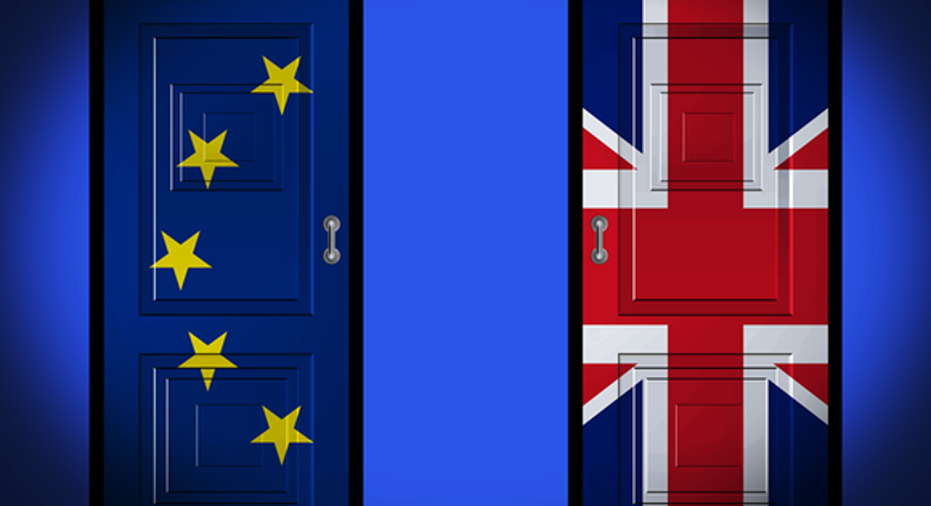Divided European Leaders Struggle with Post-Brexit Vision

European leaders, struggling to overcome an historic crisis following Britain's vote to leave the EU, agreed on Friday to explore closer defense cooperation and boost security at their external borders, but could not hide deep divisions over refugees and economic policy.
Meeting in the Slovak capital with the British conspicuously absent, the 27 other EU members unveiled a six-month "road map" of measures designed to restore public confidence in Europe's ailing common project.
But several leaders, including Italy's Matteo Renzi and Hungary's Viktor Orban, shattered the facade of unity as soon as the meeting ended, underscoring how divided the bloc remains after years of economic crisis, a record influx of migrants and a series of deadly attacks by Islamist militants.
"I'm not satisfied with the (summit) conclusions on growth or on immigration," said Renzi, apparently miffed at being excluded from a joint news conference given by Germany's Angela Merkel and France's Francois Hollande at the end of the summit.
"To define as a step forward today's document on migrants would require a form of fantasy, a verbal high-wire act," the Italian prime minister added.
Orban criticized Merkel for refusing to agree to a ceiling on the number of migrants entering Europe, calling her welcoming stance towards refugees "self-destructive and naive". Until the policy was corrected, the Hungarian premier said, a "suction effect" would continue to draw masses to Europe.
People who were in the summit room said that neither Orban nor Renzi had raised serious complaints with other leaders during the talks, which were described as cordial. "This is clearly about domestic politics," one senior official said.
"EXISTENTIAL CRISIS"
The post-summit barbs tarnished a meeting that had been meant to send out a message of unity. The Brexit vote in June triggered what European Commission President Jean-Claude Juncker has described as an "existential crisis" for the EU.
After more than a half century of closer integration, concerns are rife that the bloc may now be breaking apart because its 500 million citizens no longer see it as a guarantor of peace and prosperity.
Far-right or anti-EU parties are leading in polls in France, the Netherlands and Austria. In Germany, a new anti-immigrant party, the Alternative for Germany, is causing panic among Merkel's conservatives before a national vote a year from now.
In a joint declaration by the leaders, they said were committed to offering their people "a vision of an attractive EU they can trust and support".
Their "roadmap" is a list of objectives and measures that will be debated in more detail over the next six months. The aim is to present a list of concrete reforms at a summit in the Italian capital in late March that coincides with the 60th anniversary of the EU's founding Rome Treaty.
The leaders vowed to strengthen protection of Bulgaria's border with Turkey, intensify cooperation between their security services and bolster a European investment fund meant to foster growth and create jobs.
Merkel, Europe's dominant leader for years but now under pressure at home for her refugee policies, said the EU needed more solidarity and cooperation, the values it was founded on by Germany, France, Italy and the Benelux countries in 1957.
There has been tension between Merkel and ex-communist eastern states which have refused to take in asylum-seekers, many of them Muslims, even as she let in a million people last year. But Merkel also said she now accepted their argument for "flexible solidarity", by which they could help in the migrant crisis in ways other than by taking refugees in.
FRANCO-GERMAN COUPLE
Hollande, standing alongside her, said the summit had demonstrated that the EU was capable of moving forward after the Brexit vote.
It was Germany and France that drove the bloc's foundation on the ashes of World War Two. But the Franco-German "motor" has stalled in recent years, with Germany playing an increasingly dominant role and France struggling with a weak economy, and more recently, a string of deadly Islamist attacks.
By appearing together, the two leaders appeared intent on sending the message that they are determined to work together to reinvigorate the European Union post-Brexit.
But the deeply unpopular Hollande is widely expected to lose power in a presidential election next spring, and speculation is rife in Germany about whether Chancellor Merkel will decide to run for a fourth term at next year's parliamentary election amid a fall in her popularity and infighting among her conservatives.
The leaders touched on the looming divorce negotiations with Britain only briefly, with European Council President Donald Tusk leading a discussion over lunch on a boat on the Danube.
(Additional reporting by Alastair Macdonald and Tatiana Jancarikova; Writing by Noah Barkin; Editing by Alastair Macdonald)



















